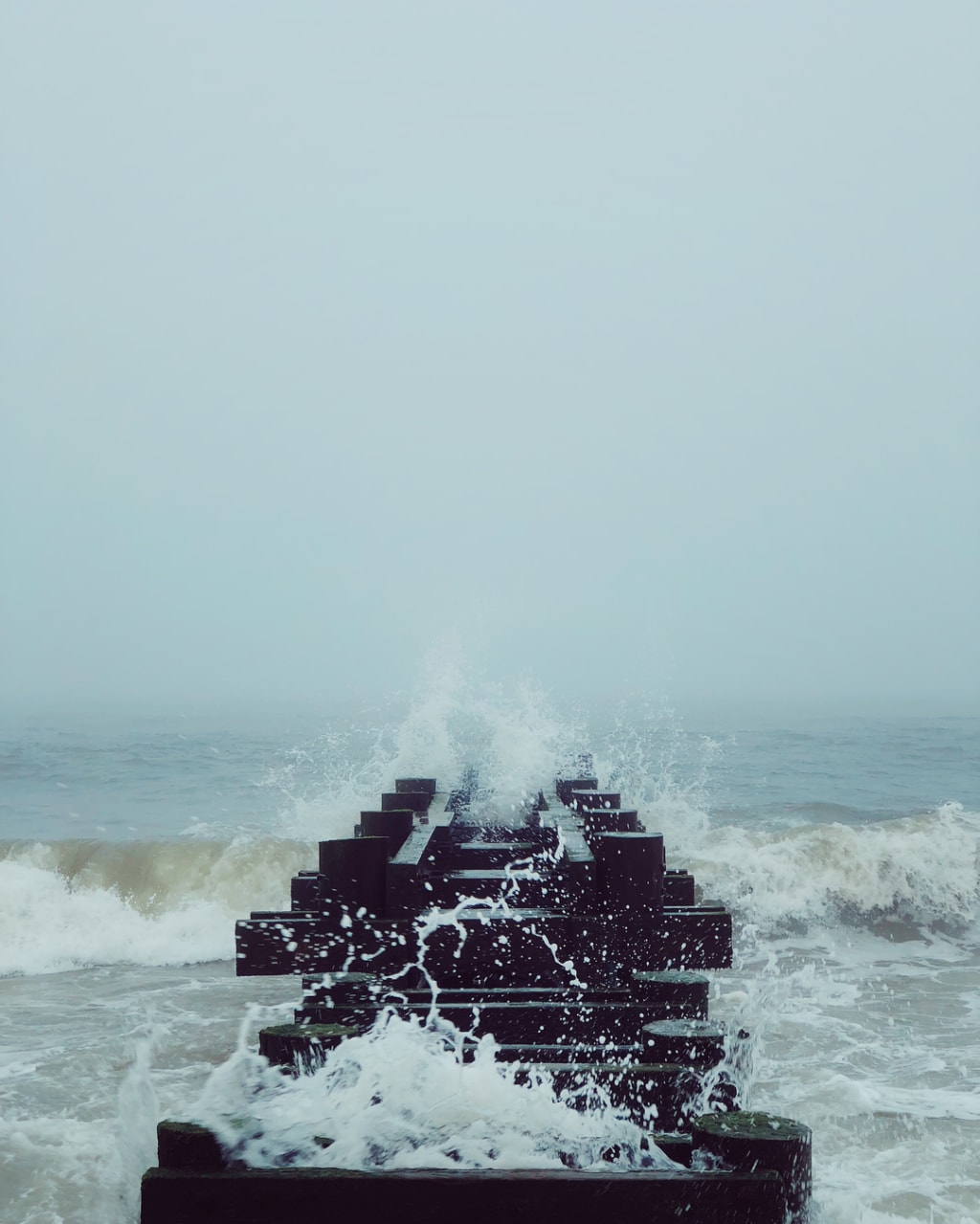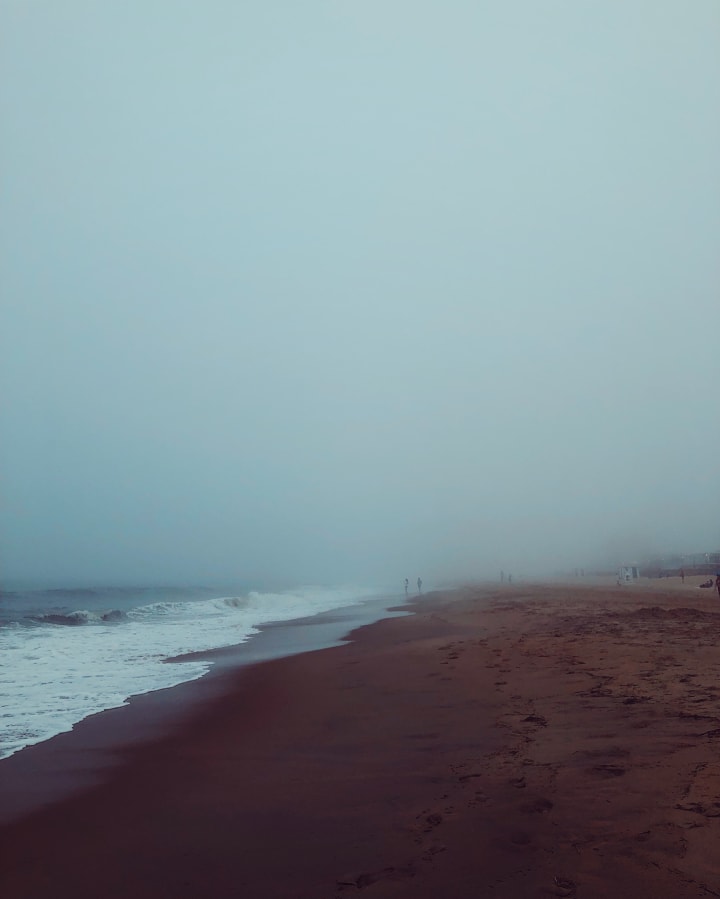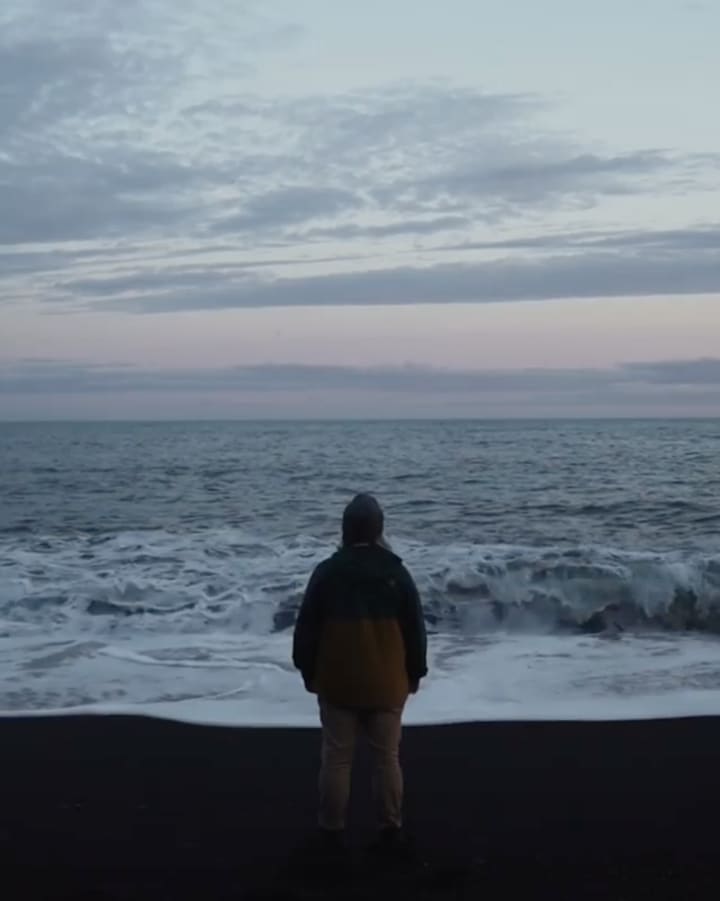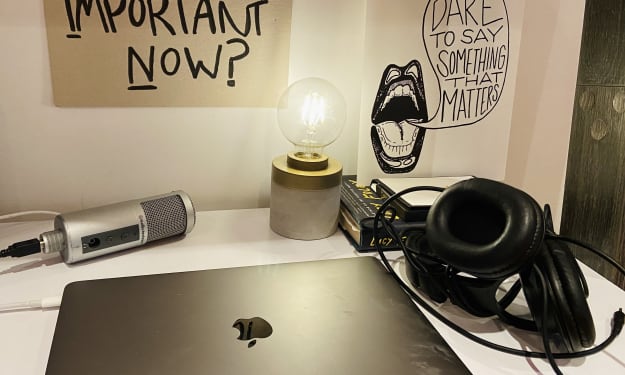The Thing That Comes In Waves
The water is too deep. It’s too dark, too. “Too” is my new resting state for anything even a smidge over the baseline of utter normalcy. It’s 80°? Too hot. We’re driving 70MPH? That’s too dangerous. It’s been four months? That’s too long. Can’t see the bottom? Too deep. Too dark. Too much.

The water is too deep. It’s too dark, too. “Too” is my new resting state for anything even a smidge over the baseline of utter normalcy. It’s 80°? Too hot. We’re driving 70MPH? That’s too dangerous. It’s been four months? That’s too long. Can’t see the bottom? Too deep. Too dark. Too much.
To be in this predicament is, generally, my worst nightmare, or at least what I would’ve cited as such before four months ago. The boat was just here. We only jumped out for a minute. I could see the other passengers so clearly, right here, right next to me. How quickly things change. How devastatingly easy it is for people to leave. How strange to find yourself utterly, recklessly alone.
I haven’t been here that long. This is new to me and the irony isn’t lost that, as I’m still in the early phase of figuring out what the hell to do, I’m quite literally finding myself “testing the waters.” Nothing to my left. Nothing to my right. An occasional splash behind me or a seabird swooping out of the corner of my eye. Above me, a sky that’s darkening quicker than I can ever recall having seen when I was safe on land, where I spent my whole life before this taking for granted the way it felt to have my feet planted and my eyes fixed and my body not bone-soaked. Now, I’m in the deep. Below me, a sea that’s filled to the brim with things I haven’t yet encountered, things the human race hasn’t even yet discovered. And me, somewhere in between. Bobbing with the sea’s rhythm, not moving forward and not sinking. Just here. Still alive. Still kicking. Still.

I think the worst thing that can happen is I see a shark. That’s not a new fear. Each year on a similar trip, I lay on the beach and I bake beneath the blazing sun until my skin nearly crackles, and I finally succumb to the inevitable by diving into the cool, crashing sea, which immediately tries to spit me back out, and I push past its turbulence until I reach the place just beyond the breakers where I don’t have to work too hard to simply exist. And I float there, content and satisfied, until after 10 or 20 or 75 minutes, when I suddenly remember, “There could be a shark under me,” and I swim madly back to the beach, the ocean doing its natural duty of effortlessly escorting me out until I get too hot again, until I forget the “what if” because I’m so busy basking in the “whatever” of it all. I long for the days when it was easy to get past the gnarl of the surf and just be. I would do anything to have to actively remember that the worst thing imaginable could actually just happen. My new resting state is “what now,” or “why her” or even sometimes, like in this moment, “what’s coming next?”
I got the call about her accident on a Sunday night. I made dinner. I turned the TV on. I took one bite of my salmon and I answered my phone and then for the next three weeks, I was mired down by the minutiae of death, absolutely dripping wet as I was hit by swell after swell of new ways to be devastated. Calling friends, cleaning out her apartment, planning memorials, writing eulogies. Reminding myself to eat. Telling myself I still needed to sleep and shower and occasionally see the sun. Feeling like there was no way to go back to the place where the ground was solid underneath me, but dreading the reality of whatever could lie ahead. So I bobbed around for a while. For weeks. For months. Four months. And then I decided to take my trip.
She always loved the ocean. She wasn’t afraid of the water or nervous about the wildlife or annoyed by the sand that snuck into cracks of you you didn’t even know existed or even angry at the sun, which almost never failed to burn her pasty white skin. She’d bring a floatie and a GoPro and a water bottle and she’d dive in, slipping under the waves instead of fighting to get over them. She’d float entirely on top of the water, dipping her camera under the surface and capturing whatever happened to be (or not to be) there. “Come in!” she’d shout to me, without fail. And I would. But I always got out just a hair too early. Right before it got too scary.
Now, we’re far past that point. The too’s of it all are too overwhelming. And the worst thing that can happen has already come to pass. At least, that’s what I thought four months ago. And four hours ago. And four minutes ago. But “worst” is subjective, and things just keep happening and keep happening and there’s no way to out-swim them. So I wait for the next worst thing to hit: a shark. That’s the new measure of “worst” out here. As far as I’m concerned, that’s what’s coming next.
But then I think of all the times I’ve been out here alone, in the ocean, past the crash of the foam and before it got too deep and too dark, and I understand that bad things have happened and bad things will happen again, but are they really that inevitable? Will this bad thing happen, and if it does, is it actually that bad? I’ve never seen a shark before. I’d never lost a friend. I’ve never been so terrified. I’ve never been so sad. I’ve never been so sure that amidst all the fear and tragedy, nothing could be worse than where I am right now, in the middle of the ocean with no life vest and no floatie and no GoPro and no best friend, and I know that the second you say, “It couldn’t be worse,” it gets worse, and so I’m anticipating the next surge, and I know it’ll be the thing that does me in. I know it’ll be too much.
And suddenly, I remember again that land exists. If the worst thing can happen, then why can’t the best? And I take a gulping, gasping breath in and I plunge myself under the water that’s just about too dark to see anything in, but not quite, and I open my eyes and I see the thing that actually, shockingly, is the worst thing I could see: nothing at all. The worst thing that happens is I am here alone. The worst thing that happens is I am untethered. Nothing is underneath me but the vast open chasm of the ocean. Nothing is underneath me but nothing. That’s worse than a nudge from below. That’s worse than a bite. Too much nothing is worse than too much of anything at all. And so I come back up for air.
The thing that is scariest, it turns out, isn’t the moment you realize what’s happening. It’s the hush before. It’s the silence after. At least when you know something’s there, you can deal with it. When the phone rings, you can answer it. When the dinner is left uneaten, you can throw it away. When there is nothing to do, there is nothing to do. But when something comes suddenly out of the deep dark and jolts you to the core, you can kick and you can thrash and you can attempt to punch it in the nose. You can try desperately to avoid it entirely by swimming back to shore before it gets too close. Or you can wait until it joins you, and you can be still. And you can float. And you can take some comfort in knowing that now, at least, you can see the thing you feared so deeply. You can look right at it. And you can survive, still.
You find out how good of a swimmer you are when you need to keep your head above water. You find out how much you want to live when you’re faced with death. You understand how unrelentingly horrifying it is to be unsure of the next time your feet will be on steady ground when they’re hanging, weightless and aimless, beneath you. It’s easy enough to allow yourself to sink. It’s not hard to slip underneath and let the tide or the darkness or the creatures undiscovered take you with them into the great unknown. But what could happen isn’t what will happen. And sometimes, a boat comes along. And sometimes, the sun sets a little later than it seems like it should. And sometimes, when you’re willing to let yourself remember that what was wet can always be dried with just a bit of sunlight, you can get yourself to the place where you’re unafraid of the water and the wildlife and the sand that sneaks into cracks, and you can learn to love the ocean, too.

About the Creator
Tina Wargo
Tina is a queer writer in Brooklyn, who uses Google mostly to image search 45-year-old women in suits, and Twitter mostly to report on her findings. She has a deep obsession with narrative, a CAROL tattoo, and, relatedly, a degree in film.






Comments
There are no comments for this story
Be the first to respond and start the conversation.